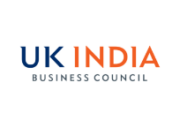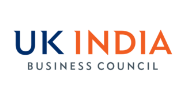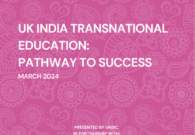Is the Government of India resting on its ease of doing business laurels?
Since coming to power, Mr Modi’s critics have accused him of placing style and slogans over substance and solid, on-the-ground, changes, including making improvements to the ease of doing business in India.
Given the confrontational nature of politics, the jury will probably always remain out.
But we at the UKIBC have seen the Indian Government move from the type of rhetoric and objective-setting required of political leaders, through initial bureaucratic engagement, to a much more granular dialogue with UK investors.
Back in 2014, Mr Modi set the target – to get into the top 50 of the World Bank’s ease of doing business rankings by 2020. Given that India stood in 142nd place in 2014, this was a typically ambitious Modi goal.
Impressively, the Government entered partnerships to learn from and collaborate with others. For example, there is a programme of knowledge share with the UK government, which, as the UK stands at number seven in the rankings, clearly can bring sharp improvements for India.
This is also an important partnership for the UK. As UK investors employ nearly 800,000 people in India and are at the top of the investors’ league table, UK businesses stand to directly benefit from an improved operating environment in India.
Another critical step taken by the Government was sharing responsibility with state governments, and working with the World Bank to rank India’s 29 states on the ease of doing business. This activity, a central plank of the cooperative and competitive federalism strategy, broad-based the effort and impact across the country.
It was, therefore, no surprise when, on 30 October 2017, India made an unprecedented leap from 130 to 100 in the World Bank’s rankings. Soon after this, the ratings agency Moodys upgraded India for the first time since 2004, and the Finance Minister announced a plan to recapitalise state-owned banks weighed down by bad debts.
So, all in all, it was a good few weeks for the Government and for economic sentiment in India.
Now, given its success, one might have expected a “more of the same” approach. But, no, since 30 October – and following the release of the UKIBC’s ease of doing business report in November – we have seen an evolution in the Government’s efforts to rise even higher up the ranking.
This is evidenced by the fact that in November and December key ministries in Delhi, think tanks like Niti Aayog, and the Prime Minister’s Economic Advisory Council have been keen to meet the UKIBC and UK investors. These Indian entities want to understand the key challenges that impact foreign investors and are keen to jointly work towards resolving these issues.
Encouragingly, there are further interactions with the ministries of Pharma, IT and Electronics, and Skills later this month, and the UKIBC is arranging activities for major UK investors to meet Commerce Minister Prabhu when he is in London on 11 January for the Joint Economic and Trade Committee bilateral with his UK counterpart, Liam Fox.
Each of these Indian leaders – bureaucrats and ministers – clearly want to understand more directly from business the challenges they face. In sectors from defence, to healthcare, to pharma, to FMCG, there is a keener interest across government to get below the surface and to grip the nitty-gritty of GST, regulatory clearances, corporate tax rates, negative perceptions of India due to the retrospective tax cases, and a range of other regulatory and practical hurdles being encountered.
Of course, what the Modi administration does with this insight from business is critical and remains to be seen. But there are two things that we can say with certainty.
First, the fact that the Government has evolved its strategy and is engaging so deeply with the UKIBC and our members demonstrates a seriousness and determination to achieve Mr Modi’s goal of getting India into the World Bank’s top 50 by 2020.
Secondly, the UKIBC’s members are responding positively to the Government’s willingness to collaborate and they and we believe that there is a real win-win to be had. We all want to build an even stronger dialogue and action plan to help India rise up the rankings.
This will create a virtuous cycle of growth and job creation because a better business environment will facilitate more investments and higher profits, which will lead to more investments, leading, in turn, to more growth and more jobs. And so on.
Conclusion
From what we have seen over the last two months – ministries and ministers establishing a deeper engagement with the UKIBC and our members – it is clear that India is not resting on its laurels as far as achieving more ease of doing business improvements or in terms of attracting further UK investments.
And, if the officials and ministers are able to turn the insights they gather into a better operating environment, there is every chance that Mr Modi’s ambition to get into the World Banks’s top 50 will become a reality.

 By Kevin McCole
By Kevin McCole 





